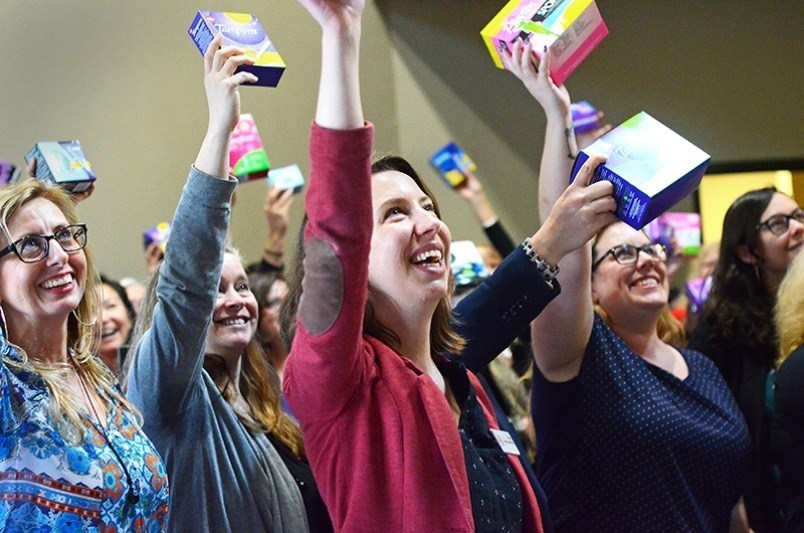Women and girls in Port Coquitlam now have access to free menstrual products after dispensers with supplies were installed in washrooms at two community centres.
Now, the city wants menstruation supplies to be available at buildings across Canada and is working with Edmonton politicians to make it happen.
Recently, PoCo Coun. Nancy McCurrach asked her council colleagues to pass two resolutions: one calling on the Canadian government to establish a national Period Poverty Task Force and another to have building codes and occupational health and safety regulations amended to include requirements for menstruation dispensers and products in public washrooms, the same as toilet paper, sinks and hand soap.
“Period products are the same as toilet paper and should be treated the same,” said McCurrach.
Currently, dispensers with supplies have been installed in two PoCo recreation facilities: one at Hyde Creek Recreation Centres and two at the Port Coquitlam Community Centre.
Following feedback from patrons, the city plans to order two more dispensers to install at Robert Hope and Centennial pools for installation later this summer.
Port Moody and Coquitlam have also installed dispensers with supplies at city facilities.
Port Coquitlam approved $13,200 in one-time start-up costs, and $8,800 ongoing operating costs for this program that addresses period poverty and supports full participation in activities, reduces stigma and promotes gender equity.
According to recent studies, 50% of those who menstruate indicate they struggled to afford menstrual products for themselves at some point.
On June 22, Port Coquitlam council approved the resolutions, which will now be supported by the city of Edmonton at the upcoming Federation of Canadian Municipalities (FCM) meeting, with the goal of seeking broad support and ultimately a petition to the federal government for action.
“I am proud of our city council for supporting this initiative with the two resolutions I put forth,” McCurrach added.
“By doing so, Port Coquitlam will be on the map as leaders in Canada for fighting period poverty and promoting gender equity.”
McCurrach also credited the United Way and its Period Promise campaign and Douglas College instructor Dr. Selina Tribe for help in providing research for the period poverty resolutions.


.png;w=120;h=80;mode=crop)
